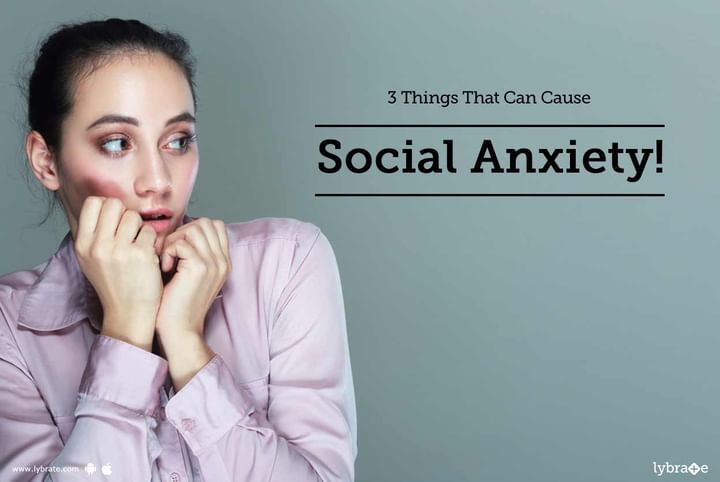3 Things That Can Cause Social Anxiety!
Social anxiety disorder is a chronic mental health condition in which a person has excessive and unreasonable fear of certain social situations. Anxiety and self-consciousness arise from a fear of being scrutinized, embarrassed or judged by others. The fear may be made worse by a lack of social skills or experience in social situations. This persistent anxiety can build into a panic attack, and the affected person may start avoiding social situations under extreme distress. People with social anxiety disorder also suffer anticipatory anxiety, which is the fear of a situation even before it happens. In many cases, the person is aware that the fear is unreasonable and overblown, yet is unable to overcome it.
Like many other mental health conditions, social anxiety disorder arises from a complex interaction of environment and genes. The possible causes are:
- Inherited traits - Genetic factors may contribute to the development of social anxiety disorder if it is present in a first-degree relative (parents, siblings or child).
- Brain structure - Nuclei shaped part of the brain called amygdala may play a role in controlling the fear response. People with overactive amygdala may have a heightened fear response, increasing anxiety in social situations.
- Environmental factors - Social anxiety disorder may be a learned behavior. You may develop the condition after witnessing the anxious behavior of others. Also, there may be an association between social anxiety disorder and overprotective parents wanting to control their children.
Social anxiety disorder is the second most common type of anxiety disorder, which most often surfaces in adolescence or early adulthood. It is more common in women than in men. There is no way to predict what will cause social anxiety disorder, but some steps can be taken to reduce the impact of symptoms by getting help early instead of delaying, managing stress in daily life and avoiding unhealthy substances like alcohol, drugs and caffeine. If you wish to discuss about any specific problem, you can consult a Psychologist.



+1.svg)
